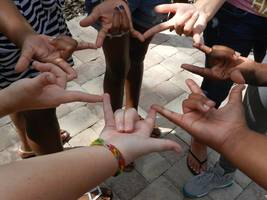This year marks 20 years since the adoption of the Slovenian Sign Language Act. On the occasion of Slovenian Sign Language Day, which is celebrated on 14 November each year, Ombudsman Peter Svetina congratulates all representatives of the deaf and hard of hearing community for all their efforts that paved the way for the adoption of this Act, which greatly improves sign language users’ lives. "However, it seems that Slovenian society will have to do a lot more to ensure their proper inclusion into society. It is true that a year and a half ago we entered Slovenian Sign Language into the Constitution of the Republic of Slovenia, whereby our country recognises the users of sign language and of tactile sign language as a community with its own culture, identity and language. Unfortunately, nothing significant has been done during all this time to systemically regulate the development of the Slovenian sign language. At the time of its entry into the Constitution, I warned that this was only the first step towards the full realisation of the rights of the deaf or people with hearing impairments. I therefore urge the authorities to draft implementing regulations as soon as possible, so that this community’s rights will be implemented in practice; otherwise, they will just remain dead letters. I also expect the State to draft an act that regulates the free use and development of tactile sign language, and that it will be adopted as soon as possible," emphasised Ombudsman Svetina.
In his opinion, it is the State’s duty to formulate and implement a language policy that would protect and develop the Slovenian sign language with the aim of ensuring full and effective participation in society for those who use this language due to their impairment.
